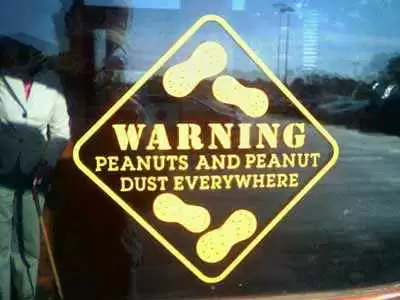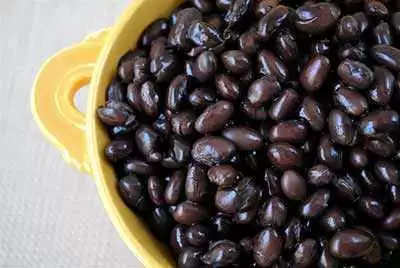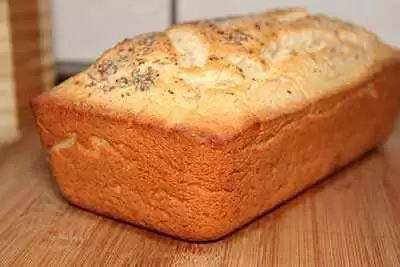
Celiac.com 12/08/2015 - Is the rate of food sensitivity and allergy growing? Or are we just more concerned about it because children experience anaphylactic crisis, sometimes even dying from exposure to peanuts, strawberries, and all the other foods that most of us think of as harmless? Even if the rates are growing, what is the cause? And should we, in the gluten sensitive community, be concerned about developing such allergies? After all, celiac patients were often told that there was no greater risk of developing IgE food allergies among those with celiac disease than is experienced by the general population (1, 2). I was certainly told this, on more than one occasion, by apparently well qualified medical practitioners. Yet, more recent research is showing that those with any autoimmune disease, including celiac disease, have a much greater risk of developing such allergies (3). Unfortunately, we still have more questions than answers. Nonetheless, the issue really does warrant exploration, especially among those who are gluten sensitive. Further, since the numbers of those with non-celiac gluten sensitivity remain controversial, we can also look at the issue from another perspective.
For instance, a study of childhood IgE allergy frequency, at a center in Texas devoted to treating allergies and similar ailments, the investigators looked at antibody reactions to cow's milk, eggs, fish, peanuts, sesame, shellfish, soy, tree nuts, and wheat. They reported that the rate of all of these allergies combined had almost tripled (from 3% to 8%) in only five years (4). That is a startling rate of increase. If this finding can be applied more broadly, it should be alarming.
Celiac.com Sponsor (A12):
However, another research group at Cornell University in Ithaca, New York, reported that childhood emergency department visits for food allergy reactions remained stable over a nine year period, while adult visits for food allergy reactions declined over this same time period (5). The central thrust of their report appears to be that we have an improving understanding of how to manage our own and our children's allergic reactions, so emergency room visits are becoming, relatively less frequent. This may simply signal that allergies are becoming so common that, as a culture, we are becoming better versed in how to avoid or manage mild allergic manifestations.
Yet another group of investigators in Australia state that there has been a "dramatic rise in the prevalence of IgE-mediated food allergy over recent decades, particularly among infants and young children " (6). They go on to suggest that this increase may be due to "the composition, richness and balance of the microbiota that colonize the human gut during early infancy" (6). They further assert that IgE food allergies are connected to an impaired barrier function of epithelial cells that line the intestinal wall, in combination with immune dysregulation (6).
Still others assert that the increase in allergies may be tied to climate change via several factors including "variability of aeroallergens, food allergens and insect-based allergic venoms" (7).
Martin Blazer, M.D., in his book titled Missing Microbes argues that overuse of antibiotics may be at the root of both the increase in food allergies, as well as the increasing prevalence of celiac disease, through disrupting the gut microbiome and selection for antibiotic-resistant strains of microbes (8).
Some or all of the foregoing theories may well have a legitimate influence on our growing rates of allergies. As I see it, however, the various theories postulated to explain these increasing rates have left out one powerful dietary trend that has also accompanied these increases in IgE food allergy prevalence. For instance, compromised intestinal barrier function is a well documented feature of gluten grain consumption, although it is greatest in the context of celiac disease. The increased release of zonulin, triggered by eating gluten grains, may also be a critical factor in the development and persistence of the disease process, especially in cases of celiac disease, type 1 diabetes, rheumatoid arthritis, ankylosing spondylitis, Crohn's disease, systemic lupus erythematosus, and about one quarter of cases of multiple sclerosis (9, 10).
In the gut, gluten triggers increased release of zonulin, which weakens the junction between the epithelial cells that form the intestinal walls, and usually provide a protective barrier where these cells connect (11). The "gap" between these cells, caused by increased zonulin release, allows undigested proteins and peptides to bypass the cells that usually transport digested particles from the intestine to the bloodstream. Partly digested proteins, small peptides, also move through these epithelial cells, following the same path that fully digested food particles follow. However, according to Dr. Fasano, those are usually so degraded that they don't trigger antibody production (9). Thus, the leaky gut that has long been associated with celiac disease, and is often seen as a characteristic of, but not restricted to this ailment, is a critical stage in the development of this illness. This leakiness is, as most readers will know, reversed by a gluten-free diet.
We are now seeing, in the peer reviewed medical literature, a wide range of ailments being identified as manifestations of undigested food proteins being "leaked" into the circulatory system. Further, there is a dose-dependent relationship between increasing gut permeability and increased gluten consumption, both in celiac disease and in other forms of autoimmunity (12). If this dose-dependent relationship also applies to many of those with other sensitivities, at admittedly lower levels of permeability (13), and if that is the dynamic that underlies much of the increasing trend of IgE food allergies, we should be seeing the rates of these allergies continue to rise in the general population. And, if we continue with our gluten gluttony, who can say how many ailments are associated with gluten consumption and increased zonulin release?
It is also possible, perhaps even probable, that some of us experience increased zonulin release into the bloodstream, rather than into the intestinal lumen. If so, those peoples' epithelial linings of lungs, nasal passages, and blood brain barriers, may be more compromised than those individuals who primarily experience a leaky gut. By weakening these other barriers, they may invite other ailments that are less obviously triggered by gluten and other food proteins.
Dr. Alessio Fasano has stated that new understandings of zonulin's role in autoimmunity, inflammation, and some cancers, "suggests that the autoimmune process can be arrested if the interplay between genes and environmental triggers is prevented by reestablishing [sic] the intestinal barrier function" (9). An animal study showed that AT1001, an experimental drug that blocks the action of zonulin, protected against autoimmune attack on pancreatic islet cells (9) which produce insulin. A human study of twenty-one subjects, reported similar findings (14).
While it is true that intestinal infections have also been shown to induce zonulin release in the gut, the issue of microbes may not be as large a factor as it at first appears. When bacteria colonize our intestines, there are three possible outcomes: First, the infection may run rampant and kill us, thus solving the problem in a most undesirable manner. Second, and much more likely, we may take antibiotics and deplete or eliminate these infectious agents in our intestines. Third, and most likely, a combination of our immune systems, other microbes resident in our gut, antibiotics, and other, possibly unknown factors, may quickly or slowly bring the infectious agent under control. By reducing its numbers sufficiently that it won't pose a serious threat to our well being, and the harmful impact of these microbes has been muted.
The second and third possibilities will be both the most common and most desirable. Also, as soon as the microbe in question is under control, zonulin release should be diminished to a point where it is either a minor factor in triggering continued zonulin release or, because it has been eradicated, the microbe will become irrelevant to zonulin release. On the other hand, for as long as we consume gluten, zonulin continues to be released, thus disrupting tight junctions in the intestinal, pulmonary, sinus, and other mucosal membranes, permitting allergens to reach our circulatory systems, ultimately giving rise to the growing prevalence of dangerous allergies that may sometimes manifest in anaphylactic reactions.
The most important issue here seems to be the impact of gluten consumption on zonulin release, along with its impact on several protective barriers in the body, weakening them at the previously tight junctions between their cells. These include the blood brain barrier, which usually protects the brain from impurities and antibodies in the blood. It also includes the mucosa that line the lungs and nasal passages that protect us from airborne toxins and microbes. When that barrier is compromised, small particles from the air that we breathe will reach our circulation and trigger immune reactions...also known as allergies.
Perhaps the most important barrier is in the digestive tract. It is made up of several variants of mucosa that protect the tissues of the gastrointestinal tract from toxins and the unwanted particles in our foods and beverages (well, most of them anyway). This, it seems to me, is the crux of our growing crisis with environmental allergies and the elevated zonulin levels that sometimes accompany them. And we can't even begin to combat this dynamic without first understanding it better.
In the meantime, adding AT1001 to gluten-containing flours might be useful. Conversely, the media voices that are selling the idea that a gluten-free diet is an expensive fad might soon see research that reveals the gluten-free diet as an excellent prophylactic against developing IgE allergies, a variety of cancers, autoimmunity, some psychiatric illnesses, and many neurological diseases. In the interim, we can only use our own best judgement and decide for ourselves. Would the dietary products of gluten grains really be that great a loss to the palate? Is it a reasonable trade-off to risk falling prey to all of the potential consequences that come to us through elevated release of zonulin?
More compellingly, perhaps, Professor Loren Cordain's assertion that humans have not had enough time to become fully adapted to eating cereal grains, especially as a dominant portion of our diet (15), appears to gain considerable support from the discovery and characterization of zonulin. Further, although some European, Asian, and northern African genes may have had as much as 15,000 years to adapt to this food source, most of the world's inhabitants have had a much shorter time to adapt. These are periods that are most appropriately measured in centuries and decades. The assumption that gluten grains can be safely consumed by all humans, because we have been eating them for "thousands of years" is unlikely to be true for most of the world's current population, and may represent a Eurocentric perspective.
Sources:
- Csorba S, Jezerniczky J, Ilyés I, Nagy B, Dvorácsek E, Szabó B. Immunoglobulin E in the sera of infants and children. Acta Paediatr Acad Sci Hung. 1976;17(3):207-14.
- Greco L, De Seta L, D'Adamo G, Baldassarre C, Mayer M, Siani P, Lojodice D. Atopy and coeliac disease: bias or true relation? Acta Paediatr Scand. 1990 Jun-Jul;79(6-7):670-4.
- Fraser K, Robertson L. Chronic urticaria and autoimmunity. Skin Therapy Lett. 2013 Nov-Dec;18(7):5-9.
- Amin AJ, Davis CM. Changes in prevalence and characteristics of IgE-mediated food allergies in children referred to a tertiary care center in 2003 and 2008. Allergy Asthma Proc. 2012 Jan-Feb;33(1):95-101.
- Clark S, Espinola JA, Rudders SA, Banerji A, Camargo CA. Favorable trends in the frequency of U.S. emergency department visits for food allergy, 2001-2009. Allergy Asthma Proc. 2013 Sep-Oct;34(5):439-45.
- Molloy J, Allen K, Collier F, Tang ML, Ward AC, Vuillermin P. The potential link between gut microbiota and IgE-mediated food allergy in early life. Int J Environ Res Public Health. 2013 Dec 16;10(12):7235-56.
- Bielory L(1), Lyons K, Goldberg R. Climate change and allergic disease. Curr Allergy Asthma Rep. 2012 Dec;12(6):485-94.
- Blazer M. Missing Microbes. Harper Collins, Toronto, Canada, 2014.
- Fasano A. Zonulin and its regulation of intestinal barrier function: the biological door to inflammation, autoimmunity, and cancer. Physiol Rev. 2011 Jan;91(1):151-75.
- Yacyshyn B, Meddings J, Sadowski D, Bowen-Yacyshyn MB. Multiple sclerosis patients have peripheral blood CD45RO+ B cells and increased intestinal permeability. Dig Dis Sci. 1996 Dec;41(12):2493-8.
- Tripathi A, Lammers KM, Goldblum S, Shea-Donohue T, Netzel-Arnett S, Buzza MS, Antalis TM, Vogel SN, Zhao A, Yang S, Arrietta MC, Meddings JB, Fasano A. Identification of human zonulin, a physiological modulator of tight junctions, as prehaptoglobin-2. Proc Natl Acad Sci U S A. 2009 Sep 29;106(39):16799-804.
- Fasano A. Leaky gut and autoimmune diseases. Clin Rev Allergy Immunol. 2012 Feb;42(1):71-8.
- Drago S, El Asmar R, Di Pierro M, Grazia Clemente M, Tripathi A, Sapone A,Thakar M, Iacono G, Carroccio A, D'Agate C, Not T, Zampini L, Catassi C, Fasano A. Gliadin, zonulin and gut permeability: Effects on celiac and non-celiac intestinal mucosa and intestinal cell lines. Scand J Gastroenterol. 2006 Apr;41(4):408-19.
- Paterson BM, Lammers KM, Arrieta MC, Fasano A, Meddings JB. The safety, tolerance, pharmacokinetic and pharmacodynamic effects of single doses of AT-1001 in coeliac disease subjects: a proof of concept study. Aliment Pharmacol Ther. 2007 Sep 1;26(5):757-66.
- Cordain L. Cereal Grains: Humanity's Double-Edged Sword. in Simopoulos AP (ed): Evolutionary Aspects of Nutrition and Health. Diet, Exercise, Genetics and Chronic Disease.
- World Rev Nutr Diet. Basel, Karger, 1999, vol 84, pp 19–73















.webp.590589ca4138c4074eca33f41f5233ba.webp)


.webp.7070dec73e8d8ed8a4797666ef448432.webp)

.webp.9196c21eadaae0966868676eb72fb80c.webp)






Recommended Comments